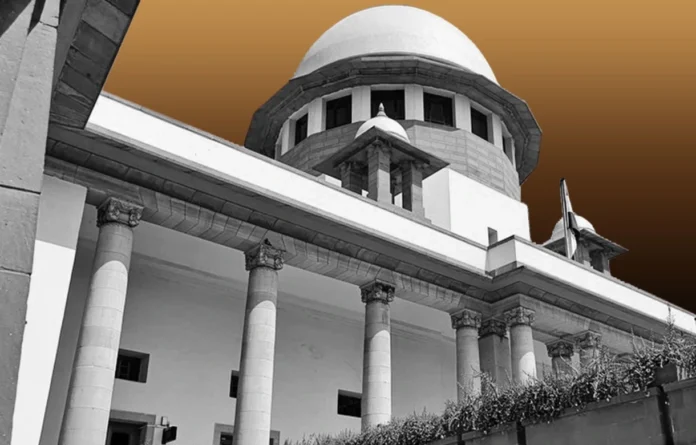The Supreme Court has observed that a person could not be prosecuted under the Scheduled Castes and the Scheduled Tribes (Prevention of Atrocities) Act solely on the grounds that the complainant belonged to the Scheduled Castes or Scheduled Tribes category.
The Division Bench of Chief Justice of India BR Gavai and Justice Augustine George Masih passed the order on a petition challenging the Telangana High Court verdict that quashed the proceedings against the respondents-accused in a case registered under Section 3(1)(viii), (ix) & (3)(2)(vii) of the Scheduled Castes and the Scheduled Tribes (Prevention of Atrocities) Act, 1989.
The case pertained to a land allotment dispute in Duvva village. The appellant herein alleged that Respondent 2 (Mandal Revenue Officer) and Accused 3, (proprietor of Ramakrishna Cine Theatre of the same village) manipulated the allotment of two plots to the upper caste individuals related to him, earmarked for Scheduled Caste/Scheduled Tribe beneficiaries. This allotment was objected to by the appellant, which was alleged to have led to his false implication in a criminal case as part of a conspiracy in retaliation for the action initiated against Respondent 2, following the appellant’s complaint regarding the wrongful allotment of the plots.
The appellant, after he was declared innocent and the prosecution was withdrawn, filed a complaint against the respondents, along with accused 3.
He alleged that at the behest of the second respondent, who bore a grudge against the appellant, as well as accused 3, whose relatives were the beneficiaries of such allotment, all three implicated the appellant and his brother.
The appellant made allegations regarding humiliation, harassment and the commission of offences under the Scheduled Caste and Scheduled Tribe (Prevention of Atrocities) Act, 1989.
The High Court quashed the proceedings against the respondents-accused by allowing a petition filed under Section 482 of Code of Criminal Procedure (CrPC).
The appellant then moved the Apex Court.
After perusing the facts of the case, the top court of the country observed that the grievance was not really relatable to the false and malicious involvement in the criminal proceedings against the appellant and his family members because of them belonging to the Scheduled Caste.
The prosecution initiated against the private respondents was based on a complaint filed by the appellant on the dropping of and the withdrawal from prosecution in criminal case qua him.
The first accused had expired and vide an order, the name of the first respondent was deleted from the array of parties at the request of the appellant and upon his application, it added.
The complainant failed to submit evidence regarding the offences, as alleged to have been committed by the private respondents. With the very intent being absent, the offences for which the prosecution had been launched could not be made out.
The Apex Court upheld the High Court verdict and dismissed the appeal.


